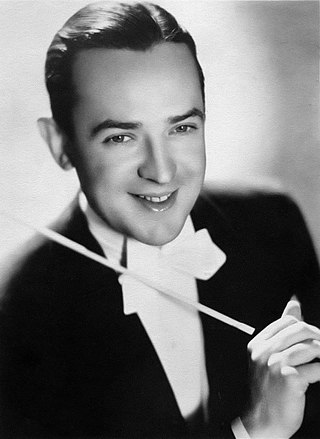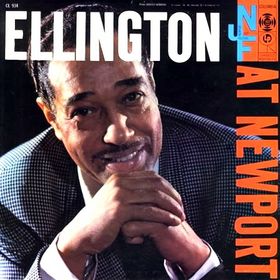Related Research Articles

Ferdinand Joseph LaMothe, known professionally as Jelly Roll Morton, was an American ragtime and jazz pianist, bandleader, and composer. Morton was jazz's first arranger, proving that a genre rooted in improvisation could retain its essential characteristics when notated. His composition "Jelly Roll Blues", published in 1915, was one of the first published jazz compositions. He also claimed to have invented the genre.

Joseph Nathan "King" Oliver was an American jazz cornet player and bandleader. He was particularly recognized for his playing style and his pioneering use of mutes in jazz. Also a notable composer, he wrote many tunes still played today, including "Dippermouth Blues", "Sweet Like This", "Canal Street Blues", and "Doctor Jazz". He was the mentor and teacher of Louis Armstrong. His influence was such that Armstrong claimed, "if it had not been for Joe Oliver, Jazz would not be what it is today."

The Original Dixieland Jass Band (ODJB) was a Dixieland jazz band that made the first jazz recordings in early 1917. Their "Livery Stable Blues" became the first jazz record ever issued. The group composed and recorded many jazz standards, the most famous being "Tiger Rag". In late 1917, the spelling of the band's name was changed to Original Dixieland Jazz Band.

William Christopher Handy was an American composer and musician who referred to himself as the Father of the Blues. He was one of the most influential songwriters in the United States. One of many musicians who played the distinctively American blues music, Handy did not create the blues genre but was the first to publish music in the blues form, thereby taking the blues from a regional music style with a limited audience to a new level of popularity.
James Edwards Yancey was an American boogie-woogie pianist, composer, and lyricist. One reviewer described him as "one of the pioneers of this raucous, rapid-fire, eight-to-the-bar piano style".

James Francis Dorsey was an American jazz clarinetist, saxophonist, composer and big band leader. He recorded and composed the jazz and pop standards "I'm Glad There Is You " and "It's The Dreamer In Me". His other major recordings were "Tailspin", "John Silver", "So Many Times", "Amapola", "Brazil ", "Pennies from Heaven" with Bing Crosby, Louis Armstrong, and Frances Langford, "Grand Central Getaway", and "So Rare". He played clarinet on the seminal jazz standards "Singin' the Blues" in 1927 and the original 1930 recording of "Georgia on My Mind", which were inducted into the Grammy Hall of Fame.

James Andrew Rushing was an American singer and pianist from Oklahoma City, Oklahoma, U.S., best known as the featured vocalist of Count Basie's Orchestra from 1935 to 1948.

James Witherspoon was an American jump blues singer.

William McKinley "Red" Garland Jr. was an American modern jazz pianist. Known for his work as a bandleader and during the 1950s with Miles Davis, Garland helped popularize the block chord style of playing in jazz piano.

Benjamin Francis Webster was an American jazz tenor saxophonist.

Ellington at Newport is a 1956 live jazz album by Duke Ellington and his band of their 1956 concert at the Newport Jazz Festival, a concert which revitalized Ellington's flagging career. Jazz promoter George Wein describes the 1956 concert as "the greatest performance of [Ellington's] career... It stood for everything that jazz had been and could be." It is included in the book 1001 Albums You Must Hear Before You Die, which ranks it "one of the most famous... in jazz history". The original release was partly recreated in the studio after the Ellington Orchestra's festival appearance.
"Ain't Nobody's Business" is a 1920s blues song that became one of the first blues standards. It was published in 1922 by Porter Grainger and Everett Robbins. The song features a lyrical theme of freedom of choice and a vaudeville jazz–style musical arrangement. It was first recorded, as "'Tain't Nobody's Biz-ness if I Do", in 1922 by Anna Meyers, backed by the Original Memphis Five.

Coltrane Jazz is the sixth studio album by jazz musician John Coltrane. It was released in early 1961 on Atlantic Records. Most of the album features Coltrane playing with his former Miles Davis bandmates, pianist Wynton Kelly, bassist Paul Chambers and drummer Jimmy Cobb during two sessions in November and December, 1959. The exception is the track "Village Blues", which was recorded October 21, 1960. "Village Blues" comes from the first recording session featuring Coltrane playing with pianist McCoy Tyner and drummer Elvin Jones, who toured and recorded with Coltrane as part of his celebrated "classic quartet" from 1960 to 1965.

Cora "Lovie" Austin was an American Chicago bandleader, session musician, composer, singer, and arranger during the 1920s classic blues era. She and Lil Hardin Armstrong are often ranked as two of the best female jazz blues piano players of the period.
Biograph Records is a record label founded in 1967 by Arnold S. Caplin that specialized in early American ragtime, jazz, and blues music. Its reissues includes Bunny Berigan, Bing Crosby, The California Ramblers, Ruth Etting, Benny Goodman, Earl Hines, George Lewis, Ted Lewis, Jimmy O'Bryant, Jabbo Smith, Jack Teagarden, Ethel Waters, and Clarence Williams. The company's label are Melodeon, Center, Regal and Dawn.
James Louis Blythe was an American jazz and boogie-woogie pianist and composer. Blythe is known to have recorded as many as 300 piano rolls, and his song "Chicago Stomp" is considered one of the earliest examples of boogie-woogie music to be recorded.
James F. Wade was an American jazz trumpeter and bandleader.
Monette Moore was an American jazz and classic female blues singer.
Viola Bartlette was an American blues singer and actress, who recorded on Black Swan Records and Paramount Records. She was from Baltimore. Bartlette recorded under the pseudonym Ida Lewis for Silvertone Records.
References
- Footnotes
- ↑ "Jimmy O'Bryant Songs, Albums, Reviews, Bio & More". AllMusic. Retrieved 2022-08-13.
- ↑ Egan, Bill (2004). Florence Mills: Harlem Jazz Queen. Scarecrow Press. ISBN 978-0-8108-5007-1.
- ↑ Dicaire, David (2015-11-05). Blues Singers: Biographies of 50 Legendary Artists of the Early 20th Century. McFarland. ISBN 978-0-7864-6241-4.
- General references
- Leonard Feather and Ira Gitler, The Biographical Encyclopedia of Jazz. Oxford, 1999, pp. 502–503.